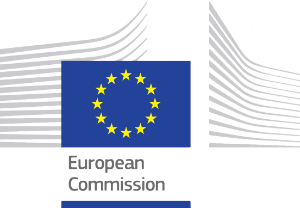In the project 'Tonight We Are Having A Banquet', young audiences, both among visitors during the tourist season and school children during the school year, follow a two and a half hour session enabling them to get to know a little better the ancient Greek culture and everyday life, to come directly to the exhibits, and to realise that, even if we are separated by thousands of years from the ancient Greek society and culture, there are some things that have not changed over the centuries. In addition, during the educational programme, children will learn how to observe, categorise, search and identify the objects in the display cases and therefore relate the ancient tools with their modern equivalents.

ReInHerit Digital Hub
Life and Times in Classical Greece through Archaeology and Gastronomy
Author(s)
ECTN
Terms of reuse
CC BY 2.0
Type of best practice
Audience and Local Community Engagement
Keywords
Young museum visitors; participant museum activities; explanatory narratives; understanding through clay reproduction of exhibits; gastronomy; cultural and creative tourism
Theme
Management
A project developed and applied at the Archaeological Museum of Agios Kirykos presenting to young audiences some aspects of life and society in Classical Greece through an initiation to dietary and gastronomic traditions as revealed in some of the Museum's exhibits. Links and distinctions are drawn between such dietary and gastronomic aspects of Ancient Greece and their present-day equivalents regarding foodstuffs, utensils and communal practices. It is addressed to both the tourist groups' younger members as an added in-destination attraction, as well as to the students of local schools contributing, among others, to their future ability to act as informed hosts.
Organisation in charge of best practice
Archaeological Museum of Agios Kirykos
Location
Ikaria island, North Aegean region, Greee
Dates
Three hours per one day session, available according to demand.
Description
Links
https://archaeologicalmuseums.gr/el/museum/5df34af3deca5e2d79e8c141/archaeological-museum-of-agios-kirykos
n/a
n/a
n/a
n/a
Resources needed
Total cost: €1100 – of which Round table: €200, Production of ceramics and clay copies: €550, Production of clay items by visitors: €50, Animator fees (per three-hour session): €300
Challenges encountered
Relations between the project organiser and animator on one side and the museum and archaeological authorities on the other were occasionally uneasy, as the latter were often reluctant to provide the former the necessary permissions to operate within the museum. Moreover, holding the project while the museum is open and full of visitors, can perturb the smooth running of the activity.
Evidence of success
Feedback from participants was obtained through a questionnaire completed at the end of sessions. The project received almost unanimous support, with participants revisiting the museum on their own, having gained a much deeper awareness of the meaning of its contents. Accompanying adults and teachers (in the case of school parties) expressed highly positive comments as to the young participants’ reaction to the whole event and experience.
Potential for transfer
The project can be easily transferred as its initiator and animator at the Archaeological Museum of Agios Kirykos has produced a detailed description of the activities to be developed in every step of its materialisation. In addition, the method adopted could be applied to museum and exhibitions with very different thematic content to that of archaeological museums. Showcase exhibits are the core of all such institutions, clay replicas of which can be easily produced and used as props for participative game activities by young visitors, and as the subject of explanatory narratives presented by the animator regarding some aspects of the life and times the museum / exhibition is meant to display. The same method has already been applied by the animator in a project at the Archaeological Museum of Kerameikos, in Athens, informing and explaining on the burial rites of Classical Greece.
Further Information
Further information can be obtained from the project’s animator, Ms Konstantina Moula, email: konstantinamoula@yahoo.com
Get in touch
Click here to send us an email, if you have any question or comment on this best practice.
